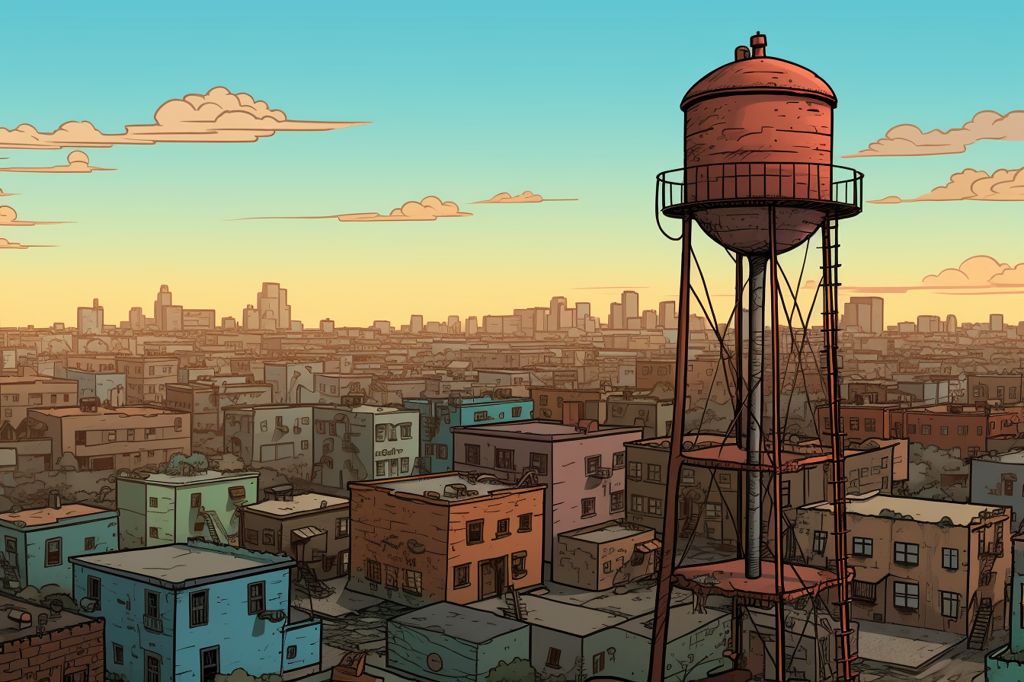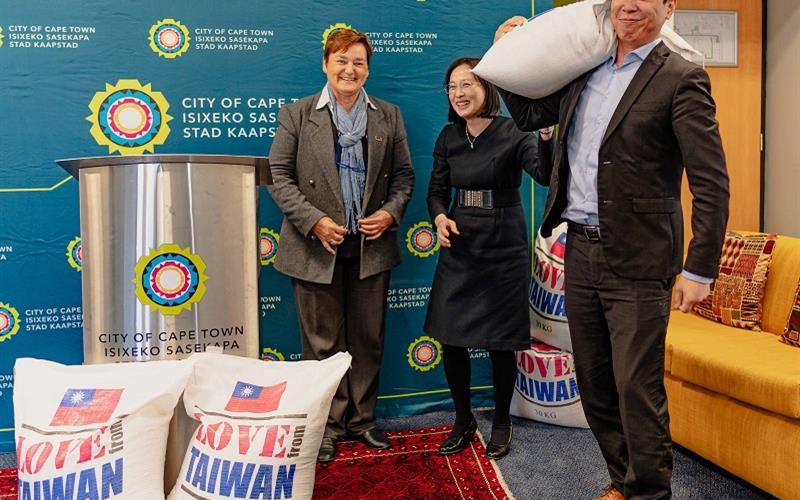South African political leaders and councilors recently convened to address the ongoing water shortage crisis in the cities of Ekurhuleni Metropolitan Municipality and Tshwane. The discussions were prompted by a fact-finding mission in September 2023 to assess the most affected municipalities in Gauteng province. The collaboration between political leaders and councilors underlined the critical need for a unified approach to tackle South Africa’s water supply challenges, ensuring that communities have access to dependable water sources and fulfilling human rights obligations.
Tackling Water Supply Issues in South African Municipalities
Deputy Ministers of Water and Sanitation, David Mahlobo and Judith Tshabalala, recently convened a meeting with political leaders and councilors from the City of Ekurhuleni Metropolitan Municipality and the City of Tshwane. They were accompanied by Ramateu Monyokolo, the Chairperson of the Rand Water Board, and aimed to discuss possible solutions to the ongoing water shortage crisis in these areas. The discussions were prompted by a fact-finding mission conducted by Minister Senzo Mchunu and his deputy ministers from 26-27 September 2023, which assessed three of the most affected municipalities in Gauteng province.
The main goal of the mission was to gain a deeper understanding of the root causes of the water supply problems and the plans in place to address them. Representatives from the City of Johannesburg also participated in the discussions, as they highlighted the recent severe water shortages in South Hills and Ebony Park. A subsequent meeting with various stakeholders was held to develop immediate solutions to this pressing issue.
Identifying Key Problems and Addressing Water Loss
One of the most significant challenges faced by the Ekurhuleni Metropolitan Municipality was the extended lack of a reliable water supply. This situation prompted protests in the Makause informal settlement in Tsakane, where residents demanded immediate action. The water shortage largely stemmed from intermittent power cuts affecting the functioning of reservoir pump stations and the low water levels in the city’s water storage reservoirs.
The Brakpan reservoir, which supplies water to Duduza, KwaThema, and Tsakane, was particularly affected, with water levels reaching a critically low 35% compared to the necessary 60-70%. This shortage impacted the water supply in higher-lying areas. Deputy Minister Judith Tshabalala also drew attention to the issue of water loss and sewage spillages in the Etwatwa Township of Ekurhuleni, emphasizing the need to prioritize water and sanitation to avoid human rights violations for community members.
In the City of Tshwane, low-capacity reservoirs in Soshanguve and Waterkloof also contributed to supply challenges. Deputy Minister Mahlobo urged the municipalities to implement Level 1 water restrictions, particularly for garden and irrigation water consumption.
Collaborating to Address Water Distribution Challenges
Despite the water supply issues, Deputy Minister Mahlobo highlighted the high availability of water in the province’s Integrated Vaal River System. He acknowledged that Rand Water, the primary water supplier to municipalities, was treating and delivering more water than ever before.
However, high rates of water loss due to leaks, illegal connections, and deteriorating or vandalized infrastructure in municipalities remained a significant challenge. Water was often wasted before reaching communities, resulting in inadequate distribution.
Following the two-day engagement, Rand Water and the affected municipalities agreed to collaborate on developing an immediate water management plan. This plan would involve implementing water-shifting to stabilize the critically low levels in the storage reservoir systems.
A Cohesive Approach to Ensuring Reliable Water Supplies
The collaboration between political leaders and councilors underlined the critical need for a unified approach to tackle South Africa’s water supply challenges. This joint effort is essential to ensure that communities have access to dependable water sources and prevent further disruptions in the future. By addressing the root causes of the water supply issues and working together on sustainable solutions, South African municipalities can improve the lives of their residents and fulfill their human rights obligations.
1. What prompted the recent discussions amongst South African political leaders and councilors?
The discussions were prompted by a fact-finding mission conducted in September 2023 to assess the most affected municipalities in Gauteng province.
2. What is the main goal of the fact-finding mission?
The main goal of the mission was to gain a deeper understanding of the root causes of the water supply problems and the plans in place to address them.
3. What challenges were faced by the Ekurhuleni Metropolitan Municipality?
The extended lack of a reliable water supply was one of the most significant challenges faced by the Ekurhuleni Metropolitan Municipality.
4. What was the cause of water shortages in Ekurhuleni Metropolitan Municipality?
The water shortage largely stemmed from intermittent power cuts affecting the functioning of reservoir pump stations and the low water levels in the city’s water storage reservoirs.
5. What was the level of water in Brakpan reservoir and what areas did it supply water to?
The Brakpan reservoir, which supplies water to Duduza, KwaThema, and Tsakane, was particularly affected, with water levels reaching a critically low 35% compared to the necessary 60-70%.
6. What contribution did low-capacity reservoirs make to supply challenges in the City of Tshwane?
Low-capacity reservoirs in Soshanguve and Waterkloof also contributed to supply challenges in the City of Tshwane.
7. What was the significance of the collaboration between Rand Water and affected municipalities?
Following the two-day engagement, Rand Water and the affected municipalities agreed to collaborate on developing an immediate water management plan. This plan would involve implementing water-shifting to stabilize the critically low levels in the storage reservoir systems.
8. What is the importance of a cohesive approach in addressing South Africa’s water supply challenges?
The collaboration between political leaders and councilors underlined the critical need for a unified approach to tackle South Africa’s water supply challenges. This joint effort is essential to ensure that communities have access to dependable water sources and prevent further disruptions in the future.








